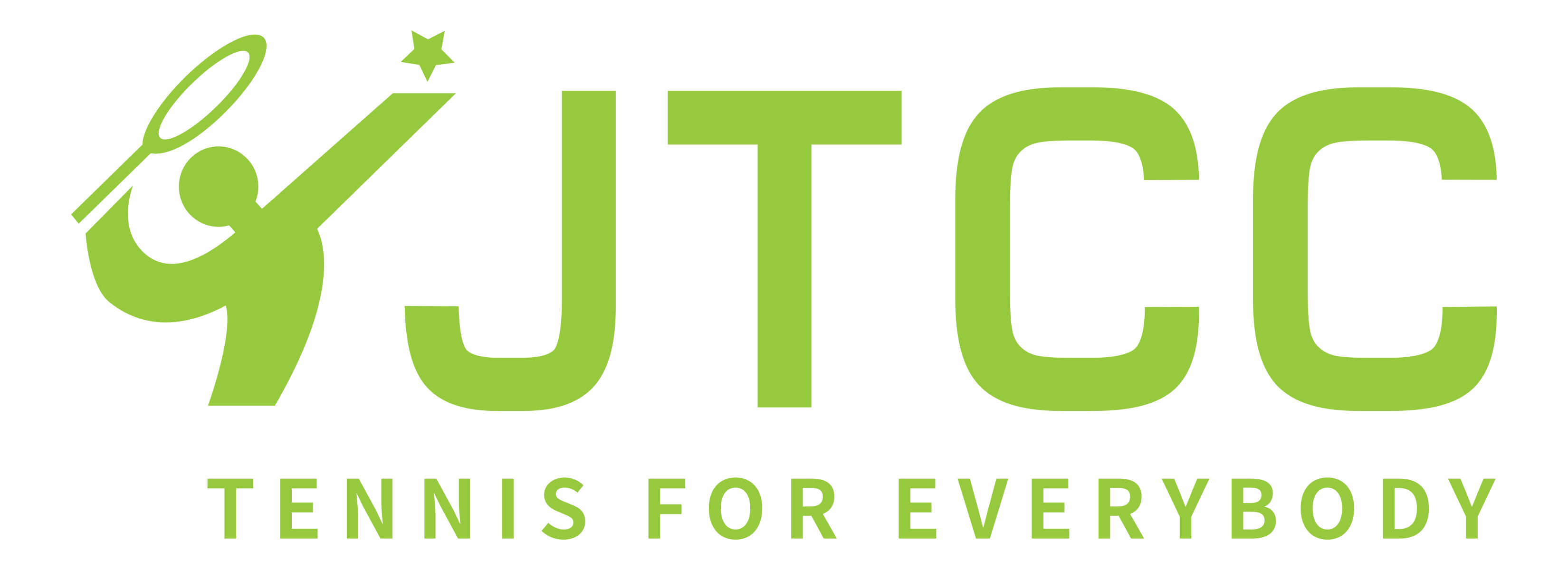
JTCC’s Director of Competition, Ben Cappuccitti, gives a fascinating insight into some techniques that might be helpful for tennis parents:
A couple of weeks ago Megan Moulton-Levy and I hosted a tennis parent workshop at JTCC. Our goal was to cover some topics to help parents prepare for the busy summer tournament schedule.
We focused on three main areas:
- Remembering what parents want their children to get out of playing tennis (e.g. a lifelong passion, committed work ethic, problem solving skills, independence)
- Why anxiety is the #1 cause of failure and how to deal with it (e.g. in situations such as cheating, conflicts, post-match routines)
- Understanding effective ways to communicate with their children about tennis
Megan and I were thrilled with the turnout and the active participation of the 30 tennis families who attended. It confirmed what we already thought; JTCC parents are committed to spending an incredible amount of time, energy, and money to help their children be the best they can be. And because they put so many resources into their kids’ athletic endeavors, they want to make sure that they are contributing to making their children as coachable as possible.
On average, today’s kids are far more comfortable with their peers than around adults and even when they are comfortable with certain adults many find it difficult to communicate effectively with them. For coaches, this can make helping them more challenging.
Think about it from this perspective: you’re a doctor seeing two patients back to back. The first one tells you “I don’t feel good.” So you ask a couple follow up questions to try and find out more about the nature of the illness but most answers from the patient are a frustration driven “I don’t know.”
Your second patient comes in and when asked the same question, answers, “I’ve had chest pain for a couple of days, especially when I inhale. It is not as much of a bother when I lie down but as soon as I move faster than a slow walk, I rapidly get out of breath, up to the point of dizziness if I go too fast.”
It is easy to recognize which patient will be easier to help. This analogy relates back to how coachable children may or may not be. The more effectively young players are able to communicate with their coaches, the deeper this relationship becomes and therefore the coaches will be in a better position to help them.
So how can you help, will you ask? Well first, the only two things a child truly needs are love and safety. Give the right amount of these two traits to a kid and you will already equip him or her with solid tools to be a well-adjusted individual.
When talking about sports and a player’s coach ability there are some other areas that require attention because even the most positive and loving parents can have an adverse effect on their children, without even knowing it.
For example, there are three extremely powerful words that might hurt a child more than you think. They are “if”, “should”, and “but.” Again, the parents might be the most positive on the planet and have the best intentions, BUT by overusing some of these words, their children might feel judged more often than not.
Let’s consider a few examples:
“What a great match you played Johnny, you did everything you could. But you didn’t go for your shots when you were up in the second set.”
“Man you hit your forehand so well today, exactly like you worked on in practice. You should have gone down the line to the kid’s backhand more though.”
“I thought you handled your emotions well today with your opponent’s bad calls. If you had kept more margin on your shots he wouldn’t have been able to cheat as much.”
A sentence like this on its own does not seem that bad at all, does it? Use it consistently enough, though, and children will never hear the positive comments skillfully crafted in at the beginning of your speech. Kids won’t even pay attention to the positive aspects knowing the “if” “but” or “should” are right around the corner.
In a lot of cases parents are absolutely correct with their observations. However, being right is rarely the issue, the consistency in which a child feels judged can lead to difficulty in being coachable. If the most important adults in the child’s life don’t give the validation he/she craves, he/she will be less likely to communicate effectively with his/her coaches.
For parents it is important to remember the figures in their own lives who taught them the most memorable lessons. They were probably able to give honest feedback without being resented. This is what great coaching is really all about.
So here is a way parents can try to replace some of the judgment loaded words mentioned previously. Instead of attempting to give feedback, as accurate as it may be, how about asking if they thought they used the most effective way to perform?
For the previous examples, the changes would sound like this:
“…do you feel like you can do something more effective at the end second sets?”
“…is there a more effective way to use those beautiful forehands against this opponent?”
“…is there anything you can do tactically to minimize the cheating?”
If parents feel like they must say something about their child’s tennis, this might be the way to convince them into coming to the intended conclusion, without making them feel threatened by a judging, parental tone. Keep judging the past and their mind will most likely stay in the past. Ask positive general questions and you have a better chance of having them focus on learning from their experiences.
However, if the goal is to make the player/coach relationship as strong as possible, the very first question a parent can when their child gets home or into the car after tennis is “what did you and your coach talk about today?”
This will help their coaches in so many ways. Firstly, it will reinforce the idea that the parents brought their children to a particular group of coaches because they trust them, and this has a very positive impact on the child/children. Secondly, it will give children a sense of security; by sending them the consistent message about the healthy separation between their coaches their parents.
The intention should be for everyone involved to give young players the unconditional positive regard that they seek, making them feel that they’re good and lovable at their core despite some of their actions and this will undoubtedly help them have an inspired and productive tennis career.


